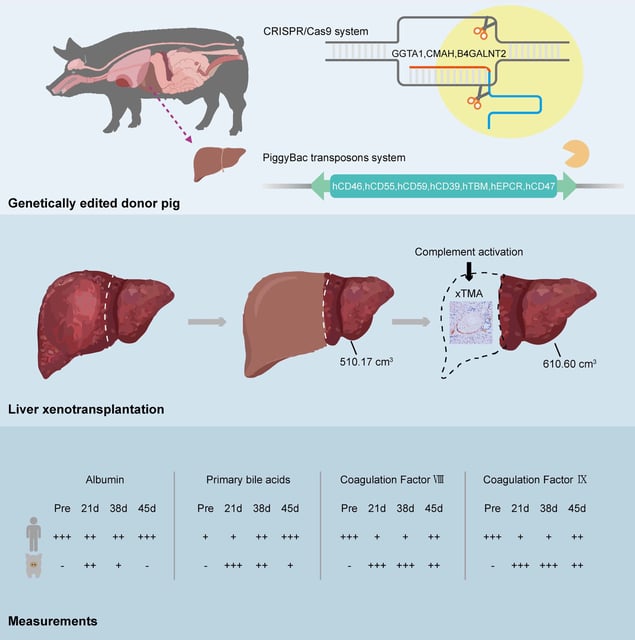Overview
- Doctors in Anhui, China, implanted an auxiliary liver graft from an 11-month-old cloned pig with 10 gene edits into a 71-year-old man in May 2024.
- The graft produced bile, maintained normal blood flow, and showed no acute rejection by day 10 before signs of xenotransplantation-associated thrombotic microangiopathy appeared.
- Surgeons removed the pig organ on day 38 as inflammation and clotting indicators progressed, and the patient’s own liver maintained adequate function.
- The patient survived 171 days after the procedure and later died from upper gastrointestinal bleeding, according to the Journal of Hepatology report.
- An editorial accompanying the study described the case as groundbreaking yet warranting cautious optimism, underscoring persistent immune and coagulation hurdles and the need for controlled clinical trials.

